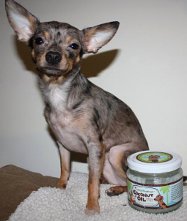Yes, coconut oil is a saturated fat, but not all saturated fat is bad for you. There are different kinds of saturated fats: long-chain fats, and medium-chain fats. Not all saturated fats are the same.
Coconut oil is known as a medium chain fatty acid, which means it contains 12 single carbon bonds, making it a more stable fat. The saturated fatty acids found in meats such as pork or beef are long chain fatty acids, containing 18-22 double carbon bonds. Animal fats such as red meat and full-fat dairy products contain mostly palmitic and stearic acids, while tropical vegetable oils such as palm and coconut oils contain primarily lauric acid.
Each subgroup has distinctly different biological effects and is metabolized by the body differently. Coconut oil is one of the world's few saturated-fat vegetable oils. Lipid researchers now admit that not all saturated fats are the same. Coconut oil contains about 64% medium-chain fatty acids. The most abundant saturated fat found in coconut oil is a medium-chain fatty acid called lauric acid. Besides lauric acid, coconut products also contain other MCFAs, such as capric acid (7 percent) and caprylic acid (8 percent), both of which also have many beneficial effects on health that are lacking in other oils.

CocoTherapy organic virgin coconut oil is all natural and pure, and is not hydrogenated, and is rich in beneficial lauric, capric and caprylic acids. CocoTherapy coconut oil is a great-tasting, nutritious addition to your pet's diet. It supplies medium chain triglycerides, which help support your pet's over-all health, maintaining healthy body functions.
Recommended amount to give: 1 teaspoon (5ml) per 10 pounds (5kg) of body weight, or 1 tablespoon (15ml) per 30 pounds (13.6 kg) of body weight. Start slowly, for example, start at a quarter of this and build up slowly. Use similarly for cats and other animals.



